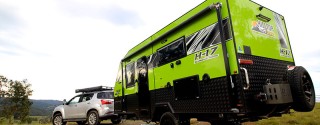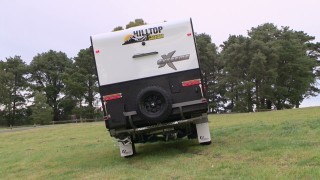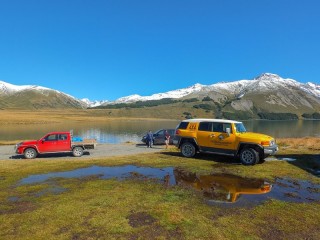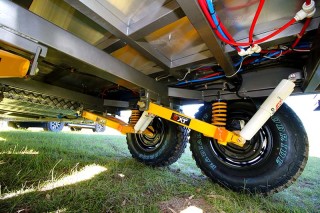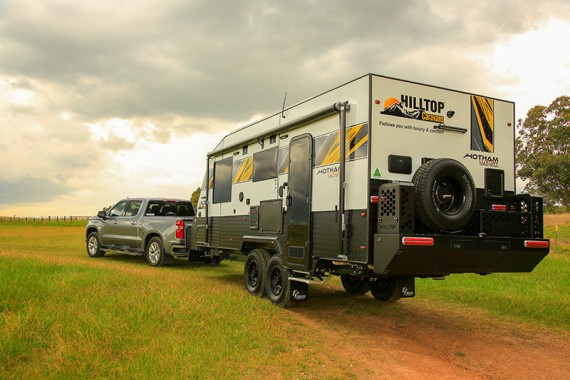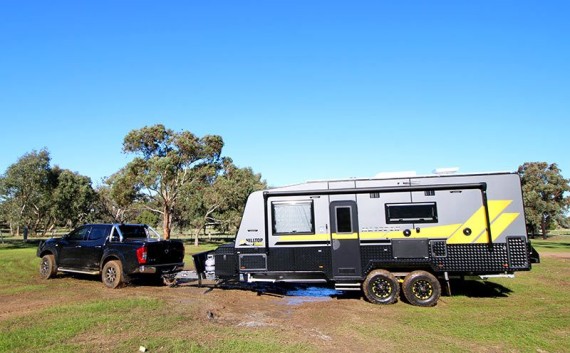Off Road Caravaning
Off-road caravaning in New Zealand is a great way to expore our country's remote & scenic landscapes - from rugged coastlines to alpine passes.
Here are some places to consider:
- Molesworth Station (South Island) - A remote route offering high-country stations & alpine views - open summer only.
- Skippers Canyon Road (Queenstown) - One of NZ's most dramatic & narrow roads.
- Ninety Mile Beach (Northland) - While technically a highway its only suitable for well-equiped vehicles.
- Central Otago Backroads - Historic goldfields, old mining towns, and wide-open high country.
What to Consider When Going off-Road Caravaning
Going off-road caravaning can be an incredible adventure, but it requires careful planning & preparation to ensure safety, comfort, and self sufficiency. Here's a a few idea's:
1. Vehicle and Caravan Suitability
4WD vehicle: make sure your tow vehicle is capable 4WD with appropriate torque & clearance.
Off-road Caravan: Use a caravan built for off-road use, with features like reinforced chassis, all terrain suspension, off road tyres, and good ground clearance.
Tow Capacity: Ensure your vehicles towing capacity suits the weight of your caravan (loaded).
2. Tyres & Suspension
All-Terrain Tyres: Fit quality off-road tyres on both vehicle & caravan.
Spare Tyres: Carry at least one spare for each and the tools to change them.
Suspension: Ensure upgraded or heavy-duty suspension on both vehicle & caravan.
3. Fuel & Water
Fuel Range: Know your vehicles range & carry extra fuel.
Water Storage: Bring sufficient drinking water & cleaning water. Remote areas may have no supply.
Water Filtration: A filtration system is recommened if sourcing water along the way.
4. Route Planning & Navigation
Research Routes: Know the conditions, terrain type, weather & remoteness.
Maps & GPS: Take offline GPS, paper maps, and /or satellite navigation system.
Permits: Some areas require access permits.
5. Recovery Gear
Essential Recovery Gear: Recovery Tracks, Snatch Straps, Winch, Rated Shackles, Shovel etc.
6. Power
Dual battery system or lithium set up with sufficent solar to stay off grid for the length of your planned trip. Generator as back up.
7. Self-Sufficincy
Food: Carry enough food for the trip and extra days in case of delays.
Cooking Gear: Gas Cooker & BBQ, fire-safe setup depending on the regulations.
First Aid Kit: A comprehensive kit suited for remote first aid needs.
Tools & Spares: Basic tool kit, fuses, belts, hoses, fluids & common caravan parts.
8. Weather & Seasonal Considerations
Rain/Flood Risk: Check for seasonal closures or flooded routes.
Heat/Cold: Plan for extremes - carry shade, heating & cooling options.
9. Legal & Safety Issues
Insurance: Ensure your vehicles & caravan are insured for off-road use.
Towing Mirrors or Rearview Camera: Good for visibility.
Weight Compliance: Stay within your gross vehicle mass (GVM), gross combined mass (GCM), and towing limits.
10. Leave No Trace
Rubbish: Carry out all waste.
Campfires: Follow local rules, use fire pits or avoid in sensitive areas.
Respect Country: Leave minimal impact and respect wildlife & protected lands.

